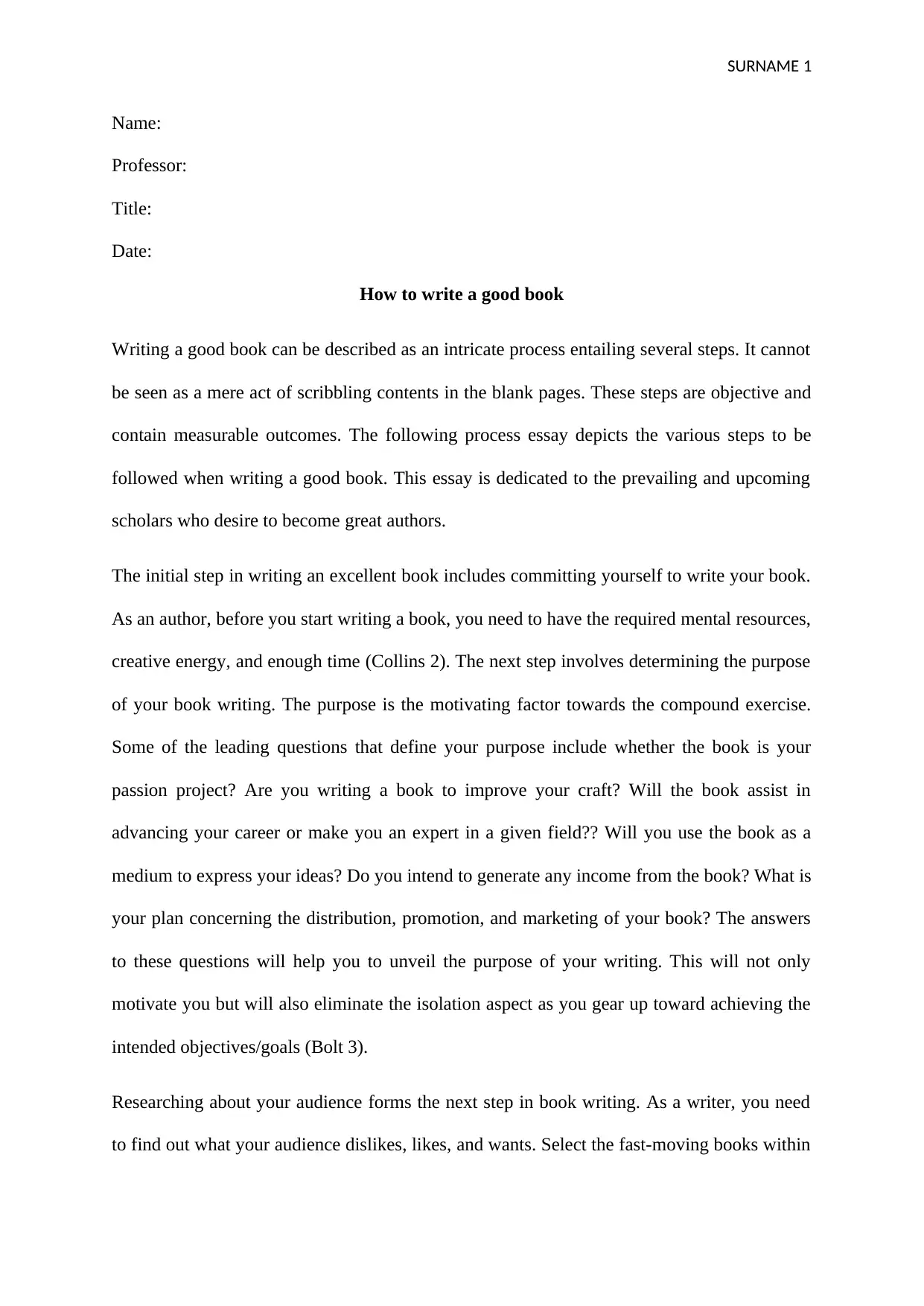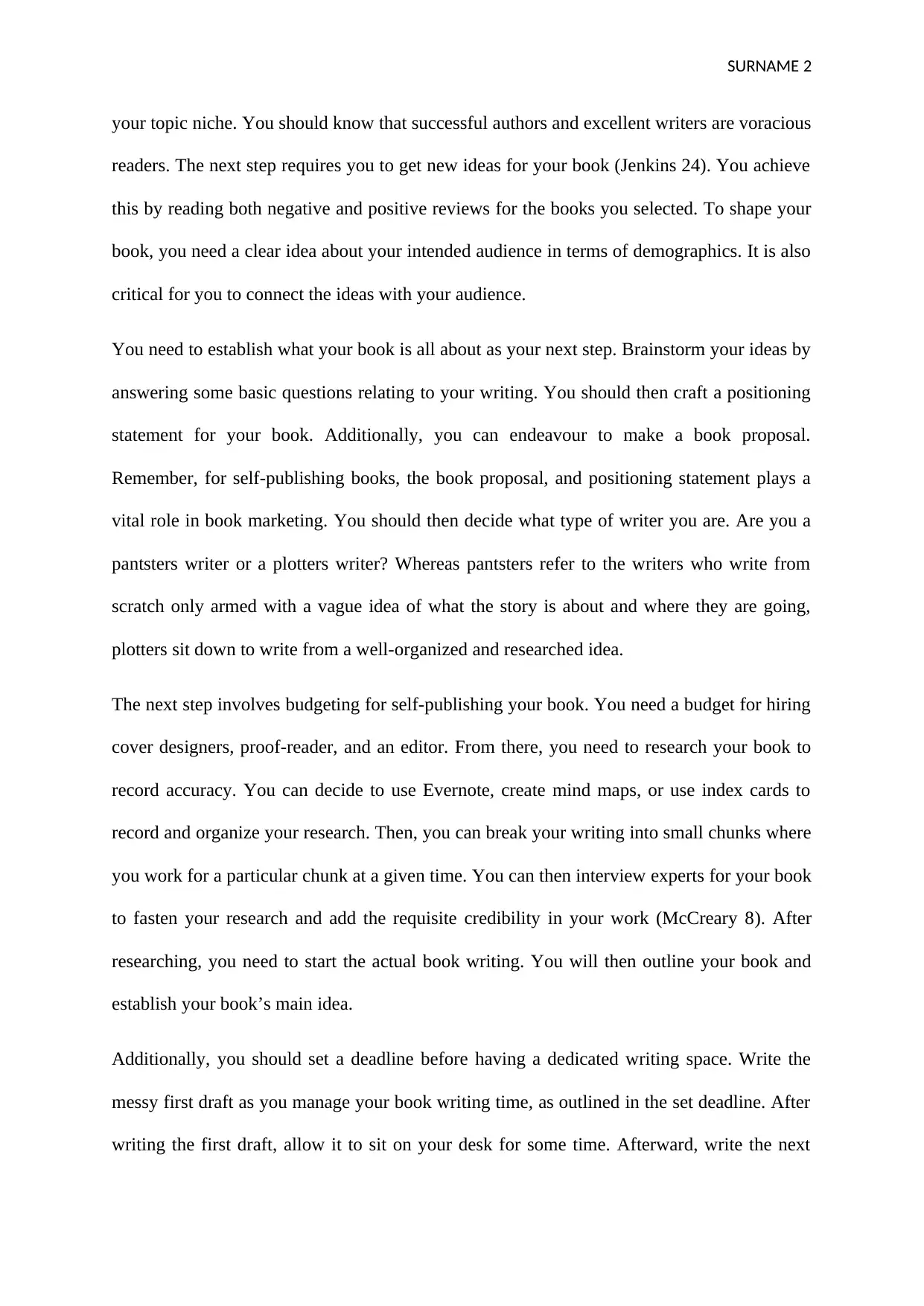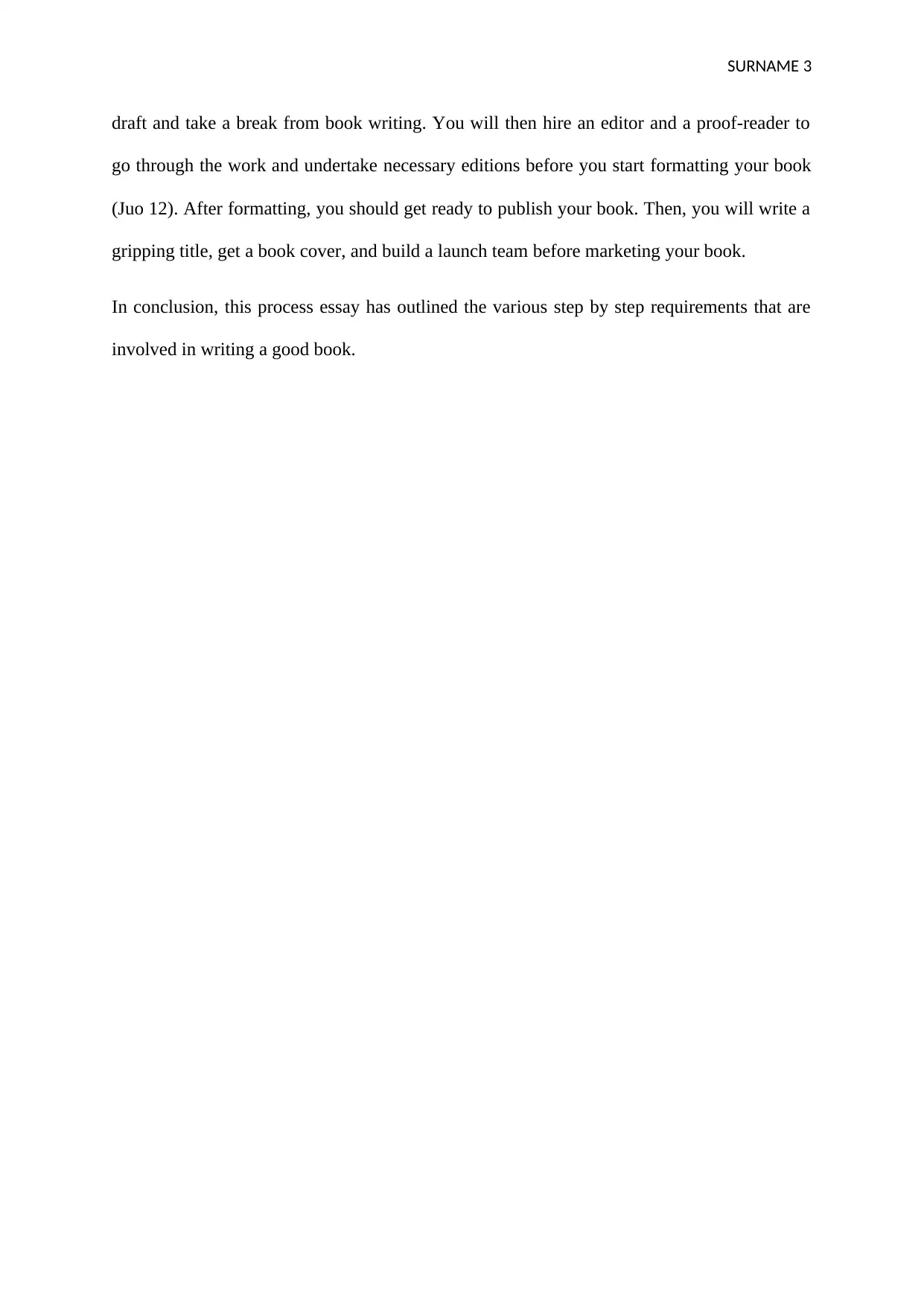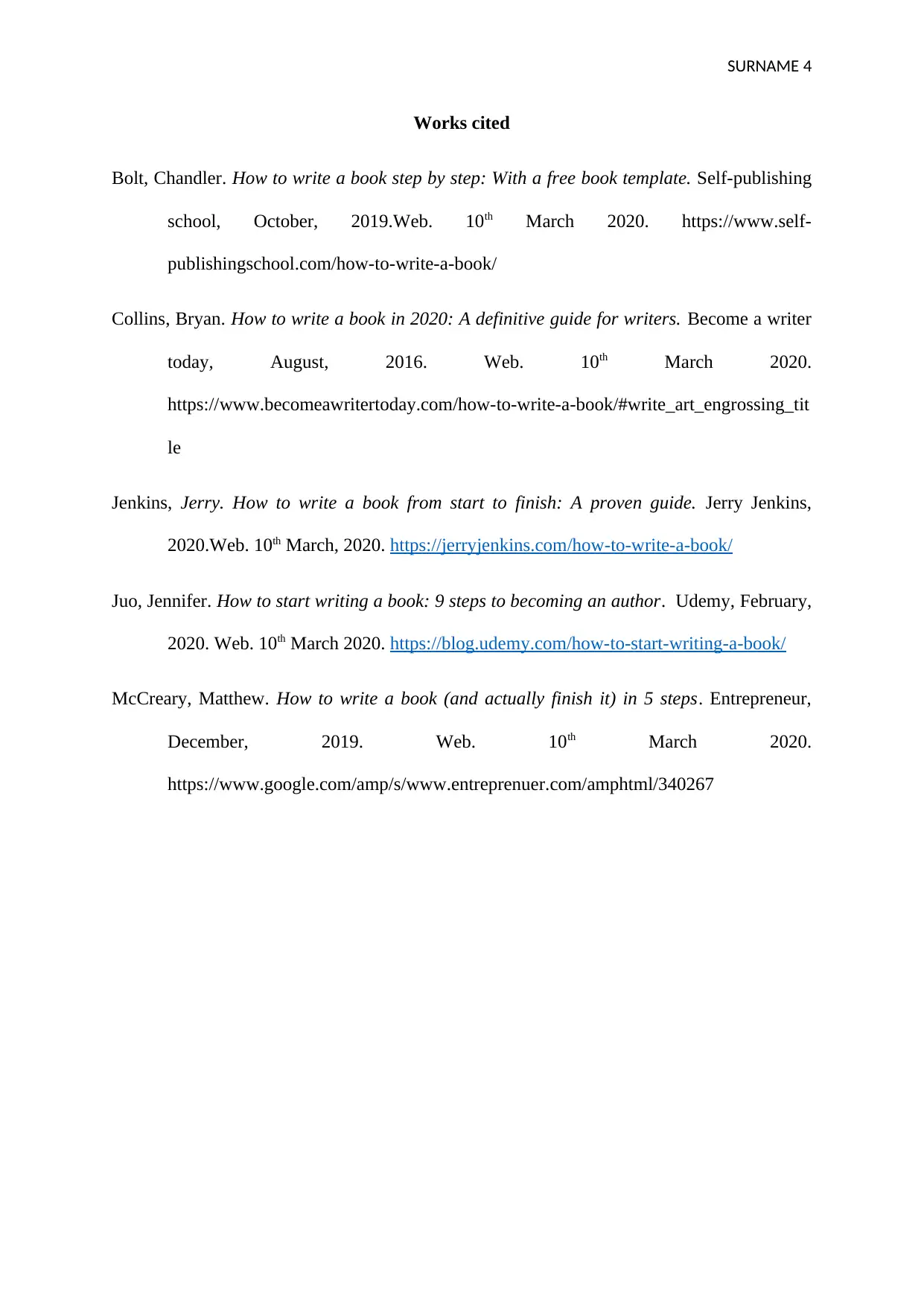The Intricate Process of Writing a Good Book: A Comprehensive Guide
VerifiedAdded on 2022/08/20
|4
|995
|20
Essay
AI Summary
This essay provides a detailed, step-by-step guide to writing a good book, targeting aspiring authors. It begins with the essential commitment and determination needed, emphasizing the importance of mental resources, creative energy, and time. The essay then delves into defining the purpose of the book, researching the target audience, and generating new ideas through reading and analysis. It covers crucial aspects like brainstorming, crafting a positioning statement, and choosing a writing style (pantser vs. plotter). The process further includes budgeting for self-publishing, thorough research, outlining, and setting deadlines. It highlights the significance of drafting, editing, formatting, and preparing for publication, including marketing strategies like creating a gripping title and building a launch team. The essay concludes by summarizing the key requirements for writing a successful book, serving as a comprehensive resource for individuals aiming to become authors.
1 out of 4











![[object Object]](/_next/static/media/star-bottom.7253800d.svg)